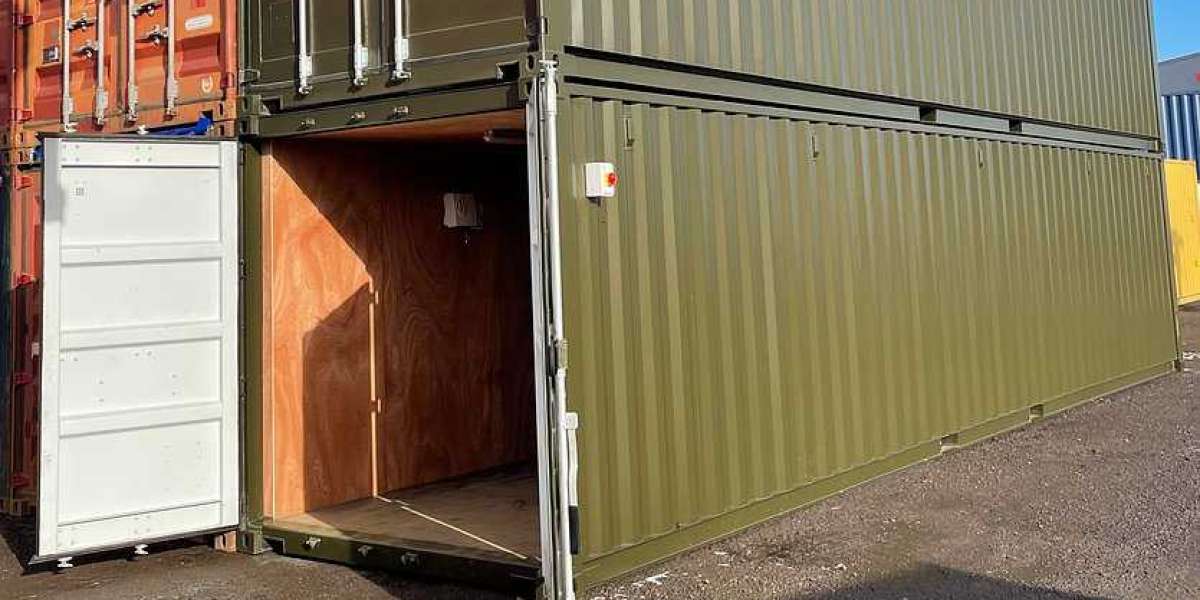Offshore containers are specialized units designed to withstand the harsh conditions of marine environments, serving a variety of critical functions in the offshore industry. These containers are essential for the transportation, storage, and protection of goods, equipment, and materials used in offshore operations such as oil and gas exploration, wind energy, and marine research. This article delves into the world of offshore containers, exploring their types, applications, benefits, and the standards they must meet.
What Are Offshore Containers?
Offshore containers are robust, weatherproof, and often custom-built units designed to meet the stringent requirements of offshore environments. These containers are typically made from marine-grade materials to ensure durability and resistance to corrosion, saltwater, and extreme weather conditions. They are used to transport and store a wide range of items, from drilling equipment and chemicals to living quarters and food supplies.
Types of Offshore Containers
Standard Offshore Containers
- 20-Foot and 40-Foot Containers: These are the most common sizes, designed for general cargo and equipment transportation.
- High Cube Containers: These containers offer additional height, providing more storage space.
Specialized Offshore Containers
- Refrigerated Containers (Reefers): Used for transporting temperature-sensitive goods such as food and pharmaceuticals.
- Tank Containers: Designed for the transport of liquids and gases, including chemicals and petroleum products.
- Open Top Containers: These containers have a removable top, making them ideal for oversized and heavy cargo.
- Flat Rack Containers: Used for transporting heavy machinery, vehicles, and other large items that cannot fit into standard containers.
Modular Offshore Containers
- Living Quarters: These containers are designed to provide comfortable living spaces for offshore workers, complete with amenities such as bedrooms, kitchens, and bathrooms.
- Office Containers: Used for on-site management and coordination, these containers are equipped with office furniture and communication systems.
- Workshop Containers: These units are designed to serve as mobile workshops, complete with tools and equipment for maintenance and repair tasks.
Applications of Offshore Containers
Oil and Gas Industry
- Drilling Operations: Offshore containers are used to transport and store drilling equipment, chemicals, and supplies.
- Production and Maintenance: Containers are used for on-site storage of production materials and maintenance tools.
Renewable Energy
- Wind Energy: Offshore containers are used to transport and store components for wind turbines, as well as for on-site maintenance and operation.
- Solar Energy: Containers are used for the transportation and storage of solar panels and related equipment.
Marine Research
- Scientific Equipment: Offshore containers are used to transport and store scientific instruments and research materials.
- Living and Working Spaces: Containers are used to provide living and working spaces for researchers and support staff.
Military and Defense
- Logistics and Supply: Offshore containers are used to transport and store military equipment, supplies, and personnel.
- Mobile Command Centers: Containers are used to establish temporary command centers for military operations.
Benefits of Offshore Containers
Durability and Weather Resistance
- Offshore containers are built to withstand harsh marine conditions, ensuring the safety and integrity of the cargo.
Customization and Flexibility
- These containers can be customized to meet specific needs, such as temperature control, security, and specialized equipment.
Cost-Effective
- Offshore containers offer a cost-effective solution for transportation and storage, reducing the need for specialized vessels and equipment.
Ease of Transport
- Standardized sizes and designs make offshore containers easy to transport using various modes, including ships, cranes, and trucks.
Safety and Security
- Offshore containers are designed with safety features such as secure locks, fire-resistant materials, and impact-resistant structures.
Standards and Regulations
Offshore containers must meet a variety of international standards and regulations to ensure safety and compliance. Some of the key standards include:
- ISO 668: International Organization for Standardization (ISO) standard for the series of freight containers.
- CSC (Convention for Safe Containers): International convention for the safety of containers used in international transport.
- DIN EN 12079: European standard for the design and testing of containers for the transport of dangerous goods.
- ABS (American Bureau of Shipping): Classification society that sets standards for the design, construction, and maintenance of marine-related facilities and equipment.
Frequently Asked Questions (FAQs)
Q: What materials are used to construct offshore containers?A: Offshore containers are typically constructed from marine-grade steel, aluminum, and other corrosion-resistant materials. These materials ensure durability and resistance to saltwater and harsh weather conditions.
Q: How are offshore containers transported?A: Offshore containers can be transported using various methods, including ships, cranes, and trucks. They are designed to be easily loaded and unloaded, making them versatile for different transportation needs.
Q: Can offshore containers be customized?A: Yes, offshore containers can be customized to meet specific requirements. Customizations can include temperature control, security features, and specialized equipment installations.
Q: What are the main industries that use offshore containers?A: The main industries that use offshore containers include the oil and gas industry, renewable energy, marine research, Cogcontainersltd and military and defense.
Q: How do offshore containers ensure the safety of the cargo?A: Offshore containers are designed with safety features such as secure locks, fire-resistant materials, and impact-resistant structures. They also meet international safety standards and regulations to ensure the protection of the cargo.
Q: Are offshore containers environmentally friendly?A: While offshore containers are essential for many industries, efforts are being made to improve their environmental impact. This includes using more sustainable materials and designing containers for longer lifespans to reduce waste.
Offshore containers play a crucial role in the transportation and storage of goods and equipment in marine environments. Their durability, customization, and cost-effectiveness make them an indispensable tool for industries such as oil and gas, renewable energy, marine research, and military and defense. By adhering to international standards and regulations, offshore containers ensure the safety and integrity of the cargo they carry, making them a vital component of offshore operations.
Whether you are a seasoned professional in the offshore industry or a newcomer, understanding the types, applications, and benefits of offshore containers is essential for optimizing your operations and ensuring the safety and efficiency of your projects.









